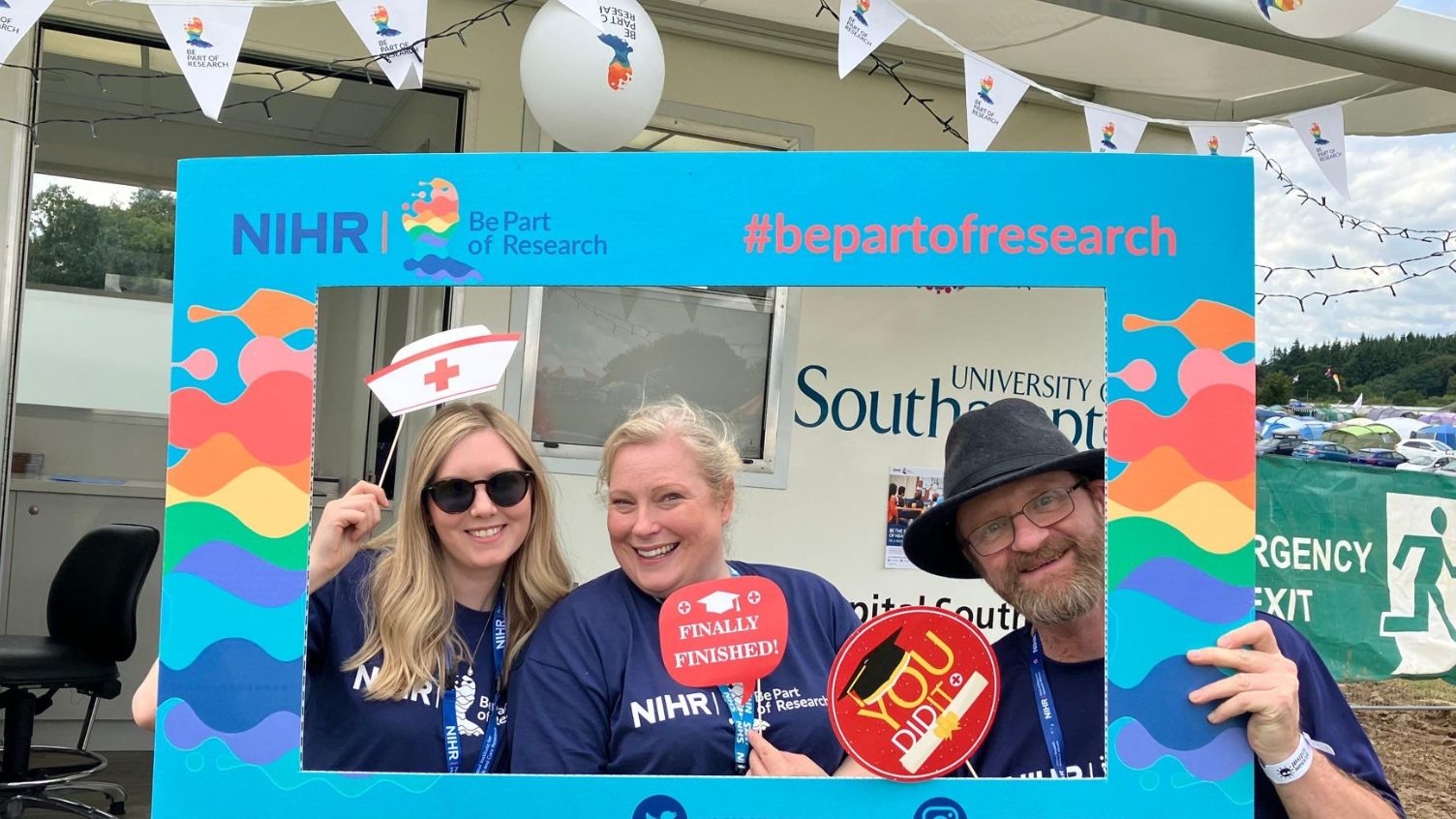What does meaningful engagement mean to me?
- 4 October 2022
- 4 min read
Jenny talks about her experiences as a member of the LGBTQ+ community
Meaningful engagement
Jenny Warmington, Senior Pharmacy Technician and Equality, Diversity & Inclusion Champion:
Meaningful engagement to me means standing on the same platform and feeling heard, being able to learn from others and being able to recognise yourself in others.
My name is Jen Warmington, I'm a wife, mother, grandmother, sister, daughter, and auntie. I am also a member of the LGBTQ+ community and I have a disability. I live and work in Coventry for the Clinical Research Network West Midlands.
Meaningful engagement should feel personal. Engagement without meaning can have a profoundly negative effect. Let me explain. My wife and I became civil partners in 2012. We wanted to have our relationship recognised both legally and socially. We actually wanted to get married but same sex marrage was not legal in England so a civil partnership was our only choice.
So what does this have to do with meaningful engagement? In order to understand the impact of meaningful engagement, you must understand your privilege. We were recognised as civil partners and not as a married couple. Not being a married couple, we felt unable to refer to each other as "wife" and constantly felt the need to explain the fact that one of us had chosen to change our last name so that we all had the same name.
On forms we were still unable to describe ourselves as "Mrs' because that's a married title. It felt very much like our civil partnership was less worthy, like our relationship didn't warrant the same recognition as a marriage. We simply didn't have those rights. That feeling of being somehow less worthy can be quite profound. It can make you feel that you need to constantly validate yourself to others, make excuses or apologies, it makes you feel somehow less worthy as a person.
It makes you speak your words in a whisper so as not to offend anyone, it stops you being seen, unable to share your lived experiences, and you fade into the background. Same sex marrage became legal in 2014 - my wife and I were able to convert our civil partnership to a marriage in 2015. It was effectively a paperwork exercise but it meant so much more to us.
Meaningful engagement is not something that happens overnight. It takes self awareness, understanding and engagement in uncomfortable conversations, but the impact can literally be life changing.
In my work, I have an honorary role as an EDI champion.
This role empowers me to talk about these important subjects and have sometimes uncomfortable conversations; without which we are unable to build a platform of psychological safety and trust to drive meaningful change. The NIHR's mission is to improve the health and wealth of the nation through research.
In order to deliver this promise we must be truly inclusive of the whole nation that we serve. Meaningful engagement with under-served communities such as LGBTQ+ allows us to understand the research that is important to the community and how we can engage better by offering research that matters and also address historical mistrust in taking part in research.
An example of this history is the HIV/AIDS epidemic which began in the late 1970s through to the 1980s. LGBTQ+ people were isolated, persecuted and victimised by the public and healthcare professionals. The stigma of being diagnosed with AIDS was so strong that families left loved ones to die alone in hospital beds, ashamed, feeling like they deserved to die and without the medical treatment and comfort that they needed.
They were directly blamed and indeed seen as being deserving of the "gay plague" for being themselves. It meant that being gay was even more taboo than it had ever been and in fact, one (of many) disturbing facts that I came across whilst researching this article is that AIDS was originally named 'Gay-Related Immune Deficiency' (GRID) and was renamed Acquired Immune Deficiancy Synrome (AIDS) in 1982 after it was found in hetrosexual women.
The HIV/AIDS epidemic had a profound impact on the health of gay men in particular. They had learned first hand that access to healthcare was not a safe space for them. This mistrust meant that their healthcare needs were not understood or met and the healthcare needs of the wider LGBTQ+ community went unheard.
Although we have learned lessons and moved forward as a result of the AIDS epidemic, we still have work to do. History is passed down through generations, it becomes part of culture.
Breaking through these barriers takes time, self awareness (knowing your privilege) and understanding, only then can we have meaningful engagement leading to an understanding of the communities that we are here to serve and make our research truly inclusive and therefore reflecting the nation that we are here to serve.
References:
Newspaper articles:
Podcast: Carl's story
Website: Terrence Higgins Trust


